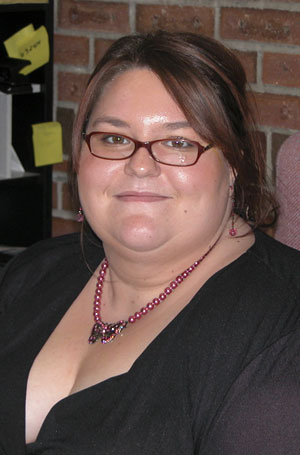New drug and alcohol abuse counselor

This archived article was written by: CJ Jelsma
CEU has a new addition to its employees thanks to part of a $2.25 million grant that Utah higher education institutions received in 2004. CEU received $153,000 of this grant. The grant was given by the Federal Center for Substance Abuse Prevention to help reduce the use of alcohol, tobacco and drugs by Utah’s college students. The targeted group of students is those between the ages of 18 and 25.
In support of the grant, many presidents of higher education institutions want campus-based substance abuse prevention efforts.
With the money CEU received, Mandee Kranjc was hired to counsel those who have or have had substance abuse problems. She is working on a three-year contract to help counsel judge-mandated and self-referred students with substance abuse problems.
Kranjc, 25, graduated from Carbon High and CEUand completed her bachelor’s degree in developmental psychology at Mesa State in Grand Junction, Colo. She is not through with her education and wants to earn her master’s degree, hopefully from the University of Utah, as well as a Ph.D. Right now, Kranjc admits that she is a little tired of college and wants to take a break and have some fun before finishing her schooling.
One of her influences for a career in counseling, she said, “is the prevention of abuse for young adults.” She said that she tries not to take any part of her work home with her, but loves helping especially when it involves kids.
Before receiving her position as CEU’s alcohol, drug and tobacco counselor, she worked at the Children’s Justice Center in Price. “My favorite part about this work is the positive effects on those who I help,” she said.
When she’s over-stressed or has spare time on her hands, she likes watching football. “I actually love football. I’m a big fan of the U.”
The counseling that Kranjc provides is preventative, but she also works with those who have problems with substance abuse. This helps students talk to someone in a neutral position. Many students with substance abuse problems find it hard to confide in those closest to them, including family and friends. The best thing about this is that the counseling is easy to get, and completely confidential.
Drug use can be using more than the recommended dose of prescription drugs or use of government regulated drugs such as marijuana and cocaine. Legal substances such as nicotine and alcohol can also be abused.
Abuse of these substances can lead to physical and psychological dependence, and long term abuse can lead to many health problems including heart disease. Another effect of drug, alcohol and tobacco use is it accelerates the aging process.
Cancer is the worst condition that can be caused by abuse of drugs. Oral cancer and cancers of the larynx, throat, esophagus, and liver occur more frequently among heavy drinkers of alcohol. Tobacco use is responsible for 87% of lung cancer cases and for about 30% of all cancer related deaths. Smokeless tobacco use or snuff increases the risk for cancers of the mouth, which can be the most painful kind of cancer.
A survey of Utah students says that 77% of students don’t drink, and most students that do, drink less than one alcoholic beverage a week. In 1995, drug use violations, including driving under the influence, accounted for one-third of all U.S. arrests. In 2002, there were an estimated 1,538,813 arrests for drug abuse violations, and 1,461,746 arrests for just driving under the influence.
Since Kranjc began working as at CEU, two self-referred students with alcohol, tobacco, or drug use problems came to her; the rest were mandated or court ordered to have counseling.
Few students go in on their own for counseling, and only those who have been in trouble for substance abuse can be mandated by the court. For more information about substance abuse counseling you can call CEU, or visit the clinic in the SAC.




